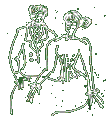News
|
|
10 Mar 2016 |
Hot Milk by Deborah Levy, book review: A beguiling tale of myths and identity Read Michèle's review of Hot Milk: Medusas whip through Deborah Levy’s coolly beguiling new novel set in Almeria in Andalusia. At first they are the jellyfish who sting Sofia, the narrator, when she ignores the yellow warning flag flying on the beach and takes an afternoon dip: ‘When I flipped over I saw them in the water, the medusas, slow and calm like spaceships, delicate and dangerous. I felt a lashing, burning pain just under my left shoulder and started to swim back to shore. It was like being skinned alive.’ Luckily, Juan, the beach guard on duty, takes care of her, smearing her with soothing ointment. Highly intelligent Sofia, aged twenty-five, is half-Greek, an anthropologist, well versed in mythology. She knows that Medusa in the ancient tale, she of the hair composed of writhing serpents, long as jellyfish tentacles, turned men to stone when they looked at her, and so the stinging jellyfish quickly take on a symbolic aspect. Sofia is accompanying her sick mother Rose to a special private clinic set inland to have her many complicated symptoms checked out, and her irritation lets her identify with the Medusa and her awful gaze: ‘If I were to look at my mother just once in a certain way, I would turn her to stone. Not her, literally. I would turn the language of allergies, dizziness, heart palpitations and waiting for side effects to stone. I would kill this language stone dead.’ Levy draws on a rich tradition of feminist writers, poets and psychoanalysts both, who have interpreted the murderous look of the Medusa as men’s fear of women’s erotic and creative power, the monster’s face, surrounded by curly snakelike hair, transposed from the secret place between her thighs. She brings the trope bang up to date: Sofia daydreams over Bowie videos on YouTube, meditates on air-fresheners and kick-boxing. In this smart modern development of the myth the monster metamorphoses again to become gender divisions themselves: ‘Where would the Medusa’s case history begin and end? Was she shocked, devastated, appalled to discover she was no longer admired for her beauty? Did she feel de-feminised? Would she walk through the door labelled “Ladies” or the door labelled “Gentlemen”? … I began to wonder if she had more power in her life as a monster.’ Appropriately enough, Sofia meets her future lover Ingrid in a public lavatory, at first assuming Ingrid to be an invading male when she spots her masculine dancing shoes under the gap in the dividing wall between cubicles. One woman desiring another used to be thought monstrous, but in today’s tourist Spain, Sofia can be as polyamorous as the Greek gods, making love with Juan too: ‘He was maternal, brotherly, he was like a sister, perhaps paternal, he had become my lover.’ In flight from conventional family life now that her father has abandoned her and Rose for a much younger woman, Sofia discovers both the terror and the delight of inventing her own life, her own meanings. The reader becomes as unsettled as Sofia through Levy’s provocative, seemingly haphazard mixing up of tenses, occasional blurring of points of view; grammar necessarily shatters when Rose and Sofia gaze newly at each other, try to break old patterns of misunderstanding, to speak truthfully. The difficult, ambivalent, precious mother-daughter relationship forms the core of this beautiful, clever novel. |


